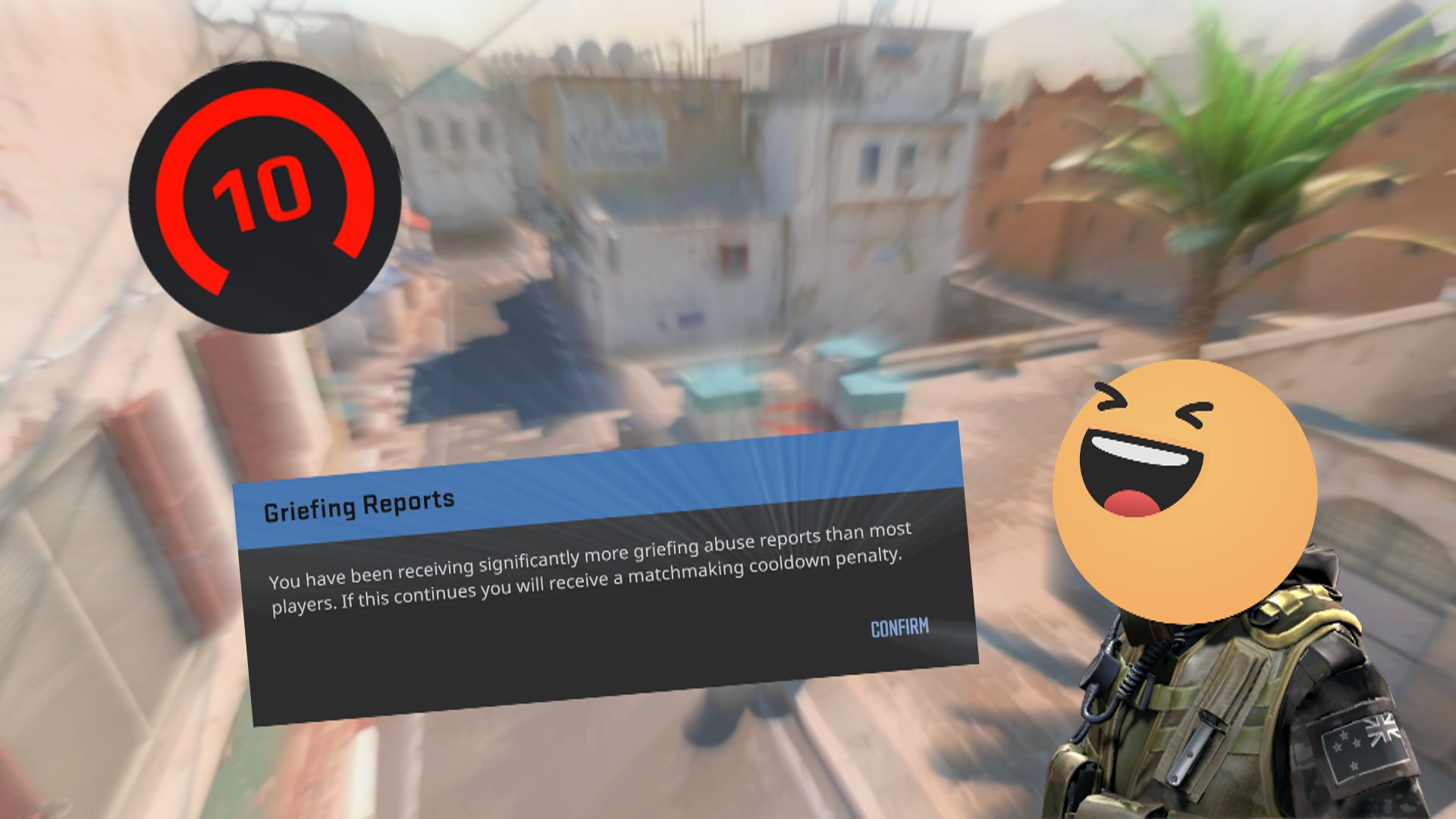Southeast Insights
Your go-to source for news and information from the vibrant heart of Shenyang.
Griefing in CSGO: How It's Like Playing Hide and Seek with Your Own Team
Uncover the chaos of griefing in CSGO—it's like playing hide and seek with your teammates! Dive into the madness now!
Understanding Griefing in CSGO: The Hidden Costs of Team Play
Understanding griefing in CSGO is essential for any player who wishes to maintain a positive team experience. Griefing refers to behaviors that intentionally disrupt or harm the game for teammates, often resulting in a negative impact on overall performance. Common forms of griefing include intentionally dying to the enemy, blocking teammates’ movements, or even using in-game tools to sabotage a team’s strategy. These actions not only frustrate players but can also cause a ripple effect, leading to team disbandment and poor morale, which are detrimental to long-term gameplay success.
Furthermore, the hidden costs of team play in CSGO can be significant. When griefing occurs, it often leads to an atmosphere of distrust and hostility among players. This can result in a breakdown of communication, reduced cooperation, and ultimately, defeat in matches. Players may find themselves reluctant to join future games or play with specific individuals due to prior negative experiences. In contrast, fostering a respectful and supportive environment not only enhances individual enjoyment but also boosts team performance, proving that addressing griefing is crucial for a healthier gaming community.

Counter-Strike is a highly popular first-person shooter game that pits teams of terrorists against counter-terrorists in various gameplay modes. One of the most sought-after items in this game is the karambit blue gem, known for its striking appearance and rarity. Players often engage in competitive matches to showcase their skills and acquire unique skins for their weapons.
Is Griefing in CSGO Really Just a Game of Hide and Seek?
Griefing in CSGO often evokes a wide range of emotions among players, as it typically involves one player intentionally disrupting the enjoyment of others. This behavior can be likened to a twisted game of hide and seek, where the griefer hides in unexpected places, lurking in the shadows to catch teammates off guard. Just like in hide and seek, the objective here is to outsmart the opponents, but the consequences can lead to frustration and a less enjoyable gameplay experience. Understanding this parallel can prompt players to view griefing from a more analytical angle rather than merely reacting with anger.
The dynamics of griefing encompass various tactics, including stealing essential items, blocking teammates, or deliberately sabotaging strategies. These actions force players to adapt, similar to adjusting one’s approach in a game of hide and seek, where finding a hidden adversary requires keen observation and strategy. Ultimately, while some may argue that griefing is merely another aspect of CSGO gameplay, this behavior can severely affect team cohesion and the overall gaming environment. Acknowledging the parallels with hide and seek may lead to a deeper understanding of player motivations and highlight the importance of fair play in the community.
Top 5 Signs You're Dealing with a Griefer in CSGO
When playing CSGO, it's crucial to recognize the behaviors that indicate you may be dealing with a griefer. One of the top signs is intentional team damage. If a player consistently uses grenades on teammates or shoots them during crucial rounds, it's a clear indication of someone who is not playing for the win but rather seeking to disrupt the team's performance. Additionally, if you notice a player frequently disconnecting during matches, only to rejoin when the game is in a disadvantageous state for your team, this is another red flag.
Another sign that you're facing a griefer is when a player engages in negative behavior such as trolling or mocking teammates. You might find them spamming voice lines or chat messages that undermine the team's morale. Furthermore, a griefer often uses a disruptive playstyle, such as intentionally failing to follow team strategies or deliberately losing key engagements. Recognizing these top signs early can save you from a frustrating gaming experience and allow you to report these players effectively.